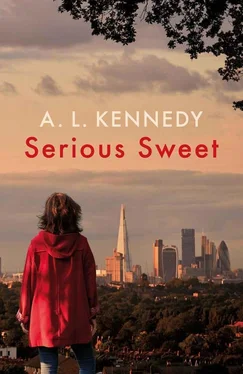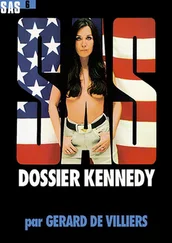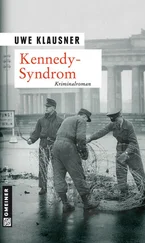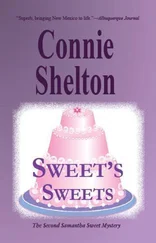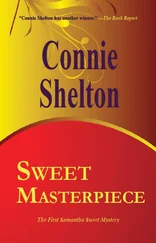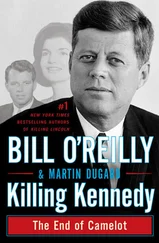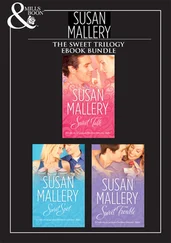Natural history is about evidence. It is supposed to be about evidence, about science, real science. If you want to know the real world and function in it rationally and effectively, if you want to progress, you collect evidence and test it and love it and want more — you have an appetite for it and its intrinsic beauty. Once you have all the information you can currently gather, you collate it and you analyse it and you come to fact-based conclusions. You have used the real world to give you solutions to itself. This is a beautiful thing.
And humans do not thrive without it.
I believe that.
Once upon a time, we won a real war, a world war, with maths: with models and plans and statistics and knowledge underpinning what we did. We weren’t always right, but we were the less-deluded side and therefore the less savage. And we won. So that people would not be crushed, or shut up in hells, so that our peace could be filled with human beings living lives to their fullest extent.
That’s all I wanted.
That isn’t really much to ask.
And it’s why I believe that facts are beautiful things.
And …
Because …
The thing is, I must not sweat when Chalice looks at me, because that will make me seem to be a man who slips away to the Natural History Museum and who has a small roll of fine paper in his pocket and who rests that prepared paper — small and white and simple, typed on one side, the interior side — who rests that in the cradle of his modestly evolved hand, opens a prearranged display drawer and then slips that paper into one of the little gaps inside, as agreed in advance.
I can’t look like a man who walks on while someone behind him opens that drawer and takes that paper and — later, probably later, I bloody well hope later and discreetly — unrolls it and finds it is covered in evidence, figures, raw data, in what have become the most damaging of the leaks which have left the department …
I have transgressed the Civil Service Code: I have disclosed official information without authority.
But I am meant to behave with integrity, honesty, objectivity and impartiality. I am called upon to set out the facts and relevant issues truthfully and correct any errors as soon as possible. I must uphold the administration of justice.
And they won’t fucking let me.
Jon felt that thrill beneath his skin — that sense of being rolled and unrolled himself, reworked, evolved, by each of his attempts at crime, each memory of gathering what his fellow human beings, what the voters ought to know.
It’s what the voters are unsurprised and indeed massively bored by, as it turns out. They are not a powder keg and I am not a match. And it’s what our current media environment finds indigestible, irrelevant, being more concerned with aspirational spending, aspirational violence, aspirational hate, aspirational fucking.
Please, not that.
So it would seem that deeper digging, further research, more transgression, is required to breach the wall of grubby white noise, to provoke public outrage, wakefulness … And so one develops strategy. One has that in one’s nature, one is trained for it … It does no good, but one deploys it, nonetheless.
And, of course, strategy shows — it suggests a mind at work, intentions. It could make people start to hunt for a Moriarty. One worries about that. There is an element of stress.
There are days when one is relieved that anything one releases into the public domain simply fizzes slightly and then disappears, leaves not a wrack behind.
Jon swung into Victoria Street and bolstered himself against simply running and not coming back, or forcing a little bit more of a nervous collapse and therefore bolting over the hills and far away, deep and deeper within the privacy of his own mind.
Off to the cloud-topped towers and gorgeous palaces of my own making.
It’s not as if I’m fully operational; I could give minor insanity as my excuse for perceived wrongdoing … But I don’t want to live in a world where concern for others and for the consequences of actions and for safety and reality and … Well, why not … ? I don’t want to live in a world where having a concern for true beauty on a wider and wider scale would be regarded as a manifestation of mental illness.
I want people to be proud of me.
Oh, that’s pathetic, though.
But I do, would, do want that.
If they knew, I would like the people whose opinion I care for to be happy when they consider what I have done.
And when they see what I will do.
I am my own department. My own ministry — ministry was always a better and more logical word.
He set his shoulders in the way masters had told him to throughout his school life — an old boy who still undressed and dressed in the order he had been given: socks, pants, vest, shirt, trousers, tie. He walked upright. He could manage that.
I am the Ministry of Natural History. I progress.
MEG WAS DIFFERENT now.
She was different and currently at work on forcing her life to be different. She felt, for example, that it should involve more happiness.
This was all possible, because of a difference she hadn’t worked on — one which appeared to choose her.
On the 28th of March 2014, Meg had woken at something like lunchtime inside the flat she had inherited from her parents. Waking was not, at that time, a good or a welcome feature of her life. It made her frightened and regretful. Her first experience of herself in any day was one of disappointment.
Not disappointed in who I was. Or that too, but more I was disappointed to feel I was still breathing. I was clinging on. Again. For more of the same.
The flat she was, by then, kind of camping inside contained what was left of her parents’ choice of furniture: 1970s, often brown. The place also contained her mother’s choice of decor — occasionally brown, but also cream and beige, although with a brownness about it. And then there were objects and ornaments of various types which had been somehow made existentially brown by continuing exposure to — she had to admit it — Meg.
Over time, the brown had become more powerful and convincing. It had spread. The brown grew to be this mystical shade of bloody doom that inhabited and rambled — a visible curse.
There was something about persistent drinking — home drinking, house drinking, house everything, locked-in everything — that generated brown. The sweating and fretting and regular visits of minicabs and the bottles handed over at the door by ashamed-for-you drivers — wet hands, crumpled money, no further pretence about parties, of just running a little short on reasonable sociable supplies — there was something about each little blow and cut of damage that made everything you touched or looked at become brown.
Even the air — the not-at-all thin, but unpleasantly thickened air. Like fucking gravy, like oxtail soup with madness in it — the madness of dead spinal columns and roll-eyed livestock. It had, by then, taken a shedload of effort just to peer through the interior — brown air, brown walls, brown carpet, brown remaining furnishings and fittings — or even to find anything in what had once been a passable family home.
No, it wasn’t passable, it was a good home. It was concerned, attentive, generous, with Sunday dinners and Songs of Praise on the telly when the hymns still had tunes and you could like and remember them, even if you didn’t believe in one syllable, and there had been books and unbroken crockery and no tear in the stair carpet. A decent humanity had abounded. No brown.
Читать дальше
